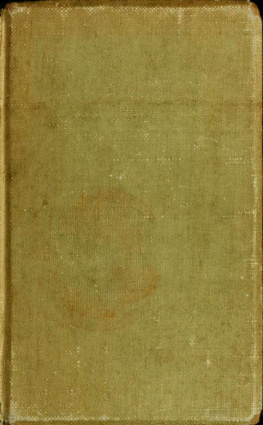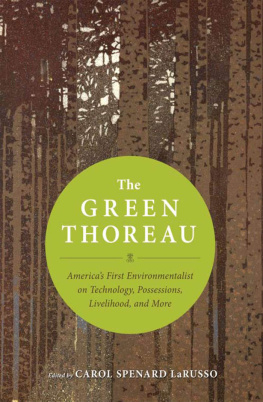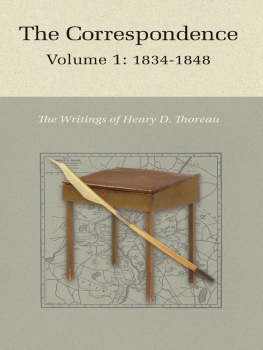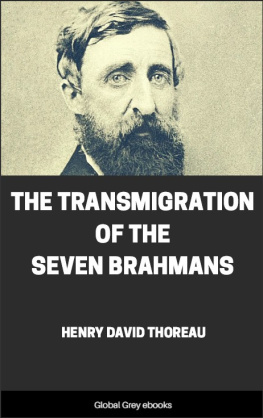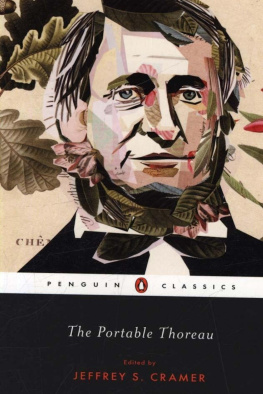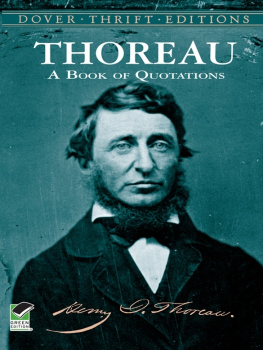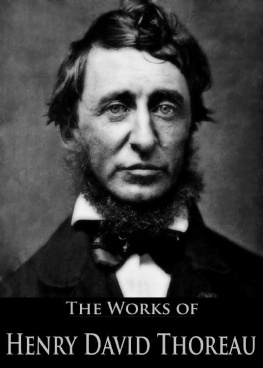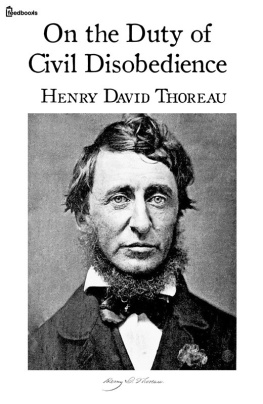Thoreau Henry David - Cape Cod
Here you can read online Thoreau Henry David - Cape Cod full text of the book (entire story) in english for free. Download pdf and epub, get meaning, cover and reviews about this ebook. genre: Science. Description of the work, (preface) as well as reviews are available. Best literature library LitArk.com created for fans of good reading and offers a wide selection of genres:
Romance novel
Science fiction
Adventure
Detective
Science
History
Home and family
Prose
Art
Politics
Computer
Non-fiction
Religion
Business
Children
Humor
Choose a favorite category and find really read worthwhile books. Enjoy immersion in the world of imagination, feel the emotions of the characters or learn something new for yourself, make an fascinating discovery.
- Book:Cape Cod
- Author:
- Genre:
- Rating:3 / 5
- Favourites:Add to favourites
- Your mark:
- 60
- 1
- 2
- 3
- 4
- 5
Cape Cod: summary, description and annotation
We offer to read an annotation, description, summary or preface (depends on what the author of the book "Cape Cod" wrote himself). If you haven't found the necessary information about the book — write in the comments, we will try to find it.
Cape Cod — read online for free the complete book (whole text) full work
Below is the text of the book, divided by pages. System saving the place of the last page read, allows you to conveniently read the book "Cape Cod" online for free, without having to search again every time where you left off. Put a bookmark, and you can go to the page where you finished reading at any time.
Font size:
Interval:
Bookmark:
The Project Gutenberg EBook of Cape Cod, by Henry D. Thoreau
This eBook is for the use of anyone anywhere at no cost and with
almost no restrictions whatsoever. You may copy it, give it away or
re-use it under the terms of the Project Gutenberg License included
with this eBook or online at www.gutenberg.net
Title: Cape Cod
Author: Henry D. Thoreau
Illustrator: Clifton Johnson
Release Date: November 21, 2010 [EBook #34392]
Language: English
*** START OF THIS PROJECT GUTENBERG EBOOK CAPE COD ***
Produced by Steve Mattern
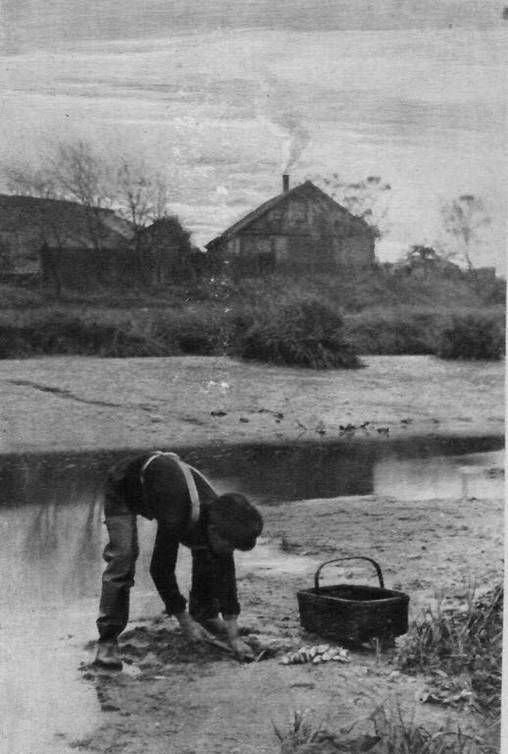
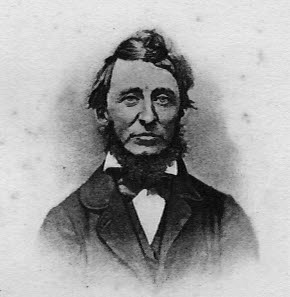
Of the group of notables who in the middle of the last century made the little Massachusetts town of Concord their home, and who thus conferred on it a literary fame both unique and enduring, Thoreau is the only one who was Concord born. His neighbor, Emerson, had sought the place in mature life for rural retirement, and after it became his chosen retreat, Hawthorne, Alcott, and the others followed; but Thoreau, the most peculiar genius of them all, was native to the soil.
In 1837, at the age of twenty, he graduated from Harvard, and for three years taught school in his home town. Then he applied himself to the business in which his father was engaged,the manufacture of lead pencils. He believed he could make a better pencil than any at that time in use; but when he succeeded and his friends congratulated him that he had now opened his way to fortune he responded that he would never make another pencil. "Why should I?" said he. "I would not do again what I have done once."
So he turned his attention to miscellaneous studies and to nature. When he wanted money he earned it by some piece of manual labor agreeable to him, as building a boat or a fence, planting, or surveying. He never married, very rarely went to church, did not vote, refused to pay a tax to the State, ate no flesh, drank no wine, used no tobacco; and for a long time he was simply an oddity in the estimation of his fellow-townsmen. But when they at length came to understand him better they recognized his genuineness and sincerity and his originality, and they revered and admired him. He was entirely independent of the conventional, and his courage to live as he saw fit and to defend and uphold what he believed to be right never failed him. Indeed, so devoted was he to principle and his own ideals that he seems never to have allowed himself one indifferent or careless moment.
He was a man of the strongest local attachments, and seldom wandered beyond his native township. A trip abroad did not tempt him in the least. It would mean in his estimation just so much time lost for enjoying his own village, and he says: "At best, Paris could only be a school in which to learn to live herea stepping-stone to Concord."
He had a very pronounced antipathy to the average prosperous city man, and in speaking of persons of this class remarks: "They do a little business commonly each day in order to pay their board, and then they congregate in sitting-rooms, and feebly fabulate and paddle in the social slush, and go unashamed to their beds and take on a new layer of sloth."
The men he loved were those of a more primitive sort, unartificial, with the daring to cut loose from the trammels of fashion and inherited custom. Especially he liked the companionship of men who were in close contact with nature. A half-wild Irishman, or some rude farmer, or fisherman, or hunter, gave him real delight; and for this reason, Cape Cod appealed to him strongly. It was then a very isolated portion of the State, and its dwellers were just the sort of independent, self-reliant folk to attract him. In his account of his rambles there the human element has large place, and he lingers fondly over the characteristics of his chance acquaintances and notes every salient remark. They, in turn, no doubt found him interesting, too, though the purposes of the wanderer were a good deal of a mystery to them, and they were inclined to think he was a pedler.
His book was the result of several journeys, but the only trip of which he tells us in detail was in October. That month, therefore, was the one I chose for my own visit to the Cape when I went to secure the series of pictures that illustrate this edition; for I wished to see the region as nearly as possible in the same guise that Thoreau describes it. From Sandwich, where his record of Cape experiences begins, and where the inner shore first takes a decided turn eastward, I followed much the same route he had travelled in 1849, clear to Provincetown, at the very tip of the hook.
Thoreau has a good deal to say of the sandy roads and toilsome walking. In that respect there has been marked improvement, for latterly a large proportion of the main highway has been macadamed. Yet one still encounters plenty of the old yielding sand roads that make travel a weariness either on foot or in teams. Another feature to which the nature lover again and again refers is the windmills. The last of these ceased grinding a score of years ago, though several continue to stand in fairly perfect condition. There have been changes on the Cape, but the landscape in the main presents the same appearance it did in Thoreau's time. As to the people, if you see them in an unconventional way, tramping as Thoreau did, their individuality retains much of the interest that he discovered.
Our author's report of his trip has a piquancy that is quite alluring. This might be said of all his books, for no matter what he wrote about, his comments were certain to be unusual; and it is as much or more for the revelations of his own tastes, thoughts, and idiosyncrasies that we read him as for the subject matter with which he deals. He had published only two books when he died in 1862 at the age of forty-four, and his "Cape Cod" did not appear until 1865. Nor did the public at first show any marked interest in his books. During his life, therefore, the circle of his admirers was very small, but his fame has steadily increased since, and the stimulus of his lively descriptions and observations seems certain of enduring appreciation.
Clifton Johnson. Hadley, Mass.
Introduction
I The Shipwreck
II Stage-coach Views
III The Plains Of Nauset
IV The Beach
V The Wellfleet Oysterman
VI The Beach Again
VII Across the Cape
VIII The Highland Light
IX The Sea and the Desert
X Provincetown
The Clam-Digger (Photogravure)
CohassetThe little cove at Whitehead promontory
An old windmill
A street in Sandwich
The old Higgins tavern at Orleans
A Nauset lane
Nauset Bay
A scarecrow
Millennium Grove camp-meeting grounds
A Cape Cod citizen
Wreckage under the sand-bluff
Herring River at Wellfleet
A characteristic gable with many windows
A Wellfleet oysterman
Wellfleet
Hunting for a leak
TruroStarting on a voyage
Font size:
Interval:
Bookmark:
Similar books «Cape Cod»
Look at similar books to Cape Cod. We have selected literature similar in name and meaning in the hope of providing readers with more options to find new, interesting, not yet read works.
Discussion, reviews of the book Cape Cod and just readers' own opinions. Leave your comments, write what you think about the work, its meaning or the main characters. Specify what exactly you liked and what you didn't like, and why you think so.



